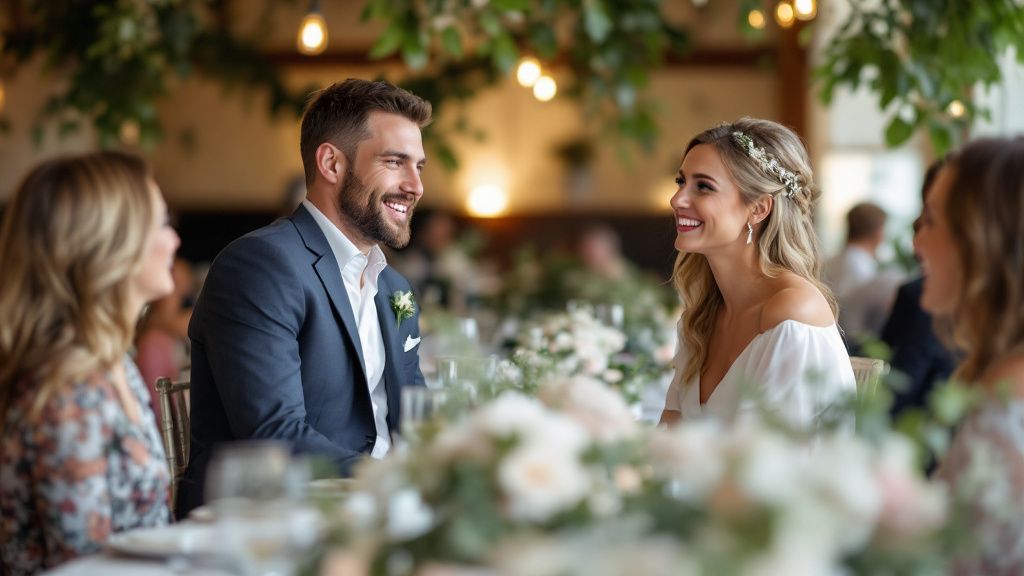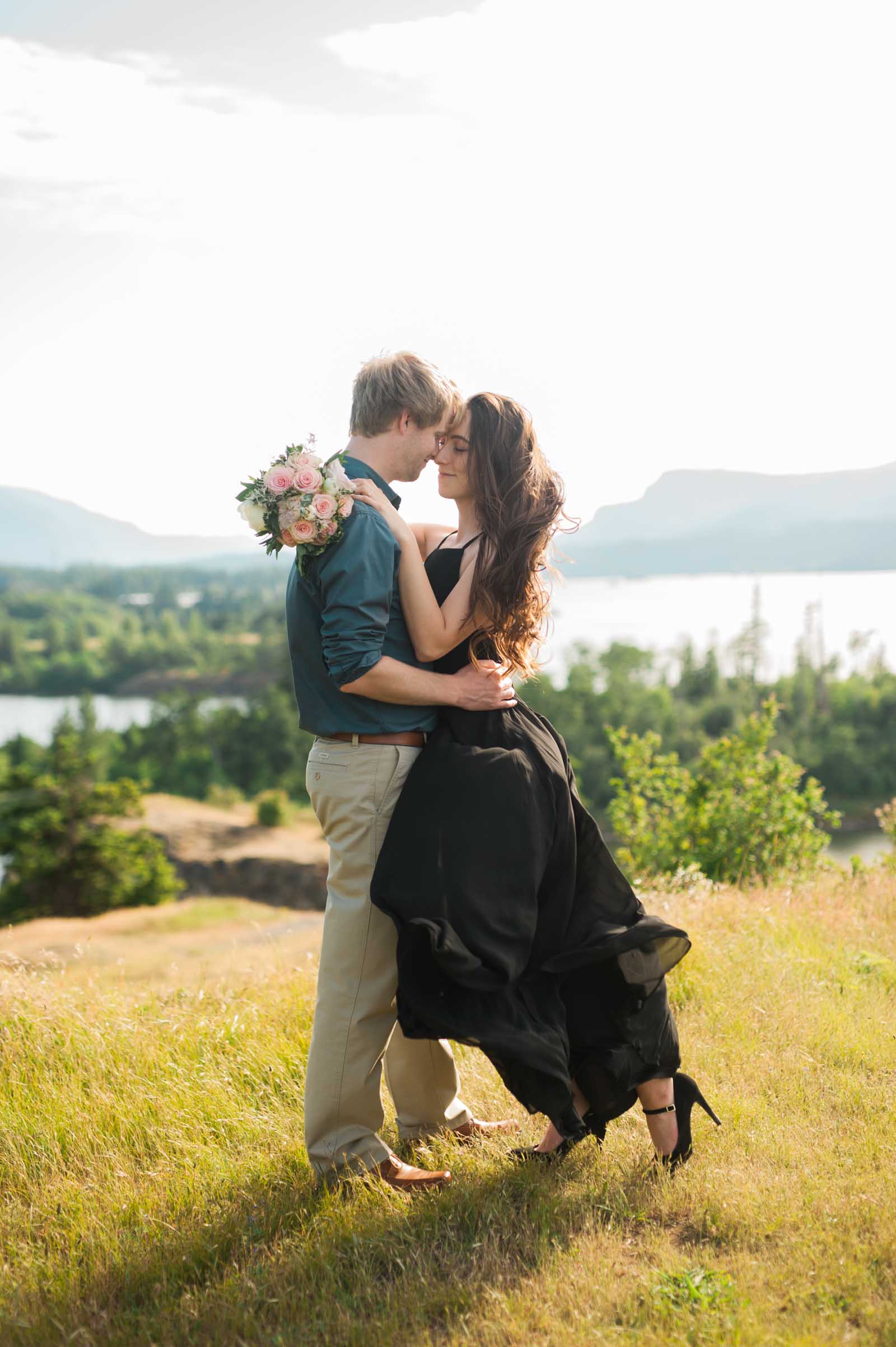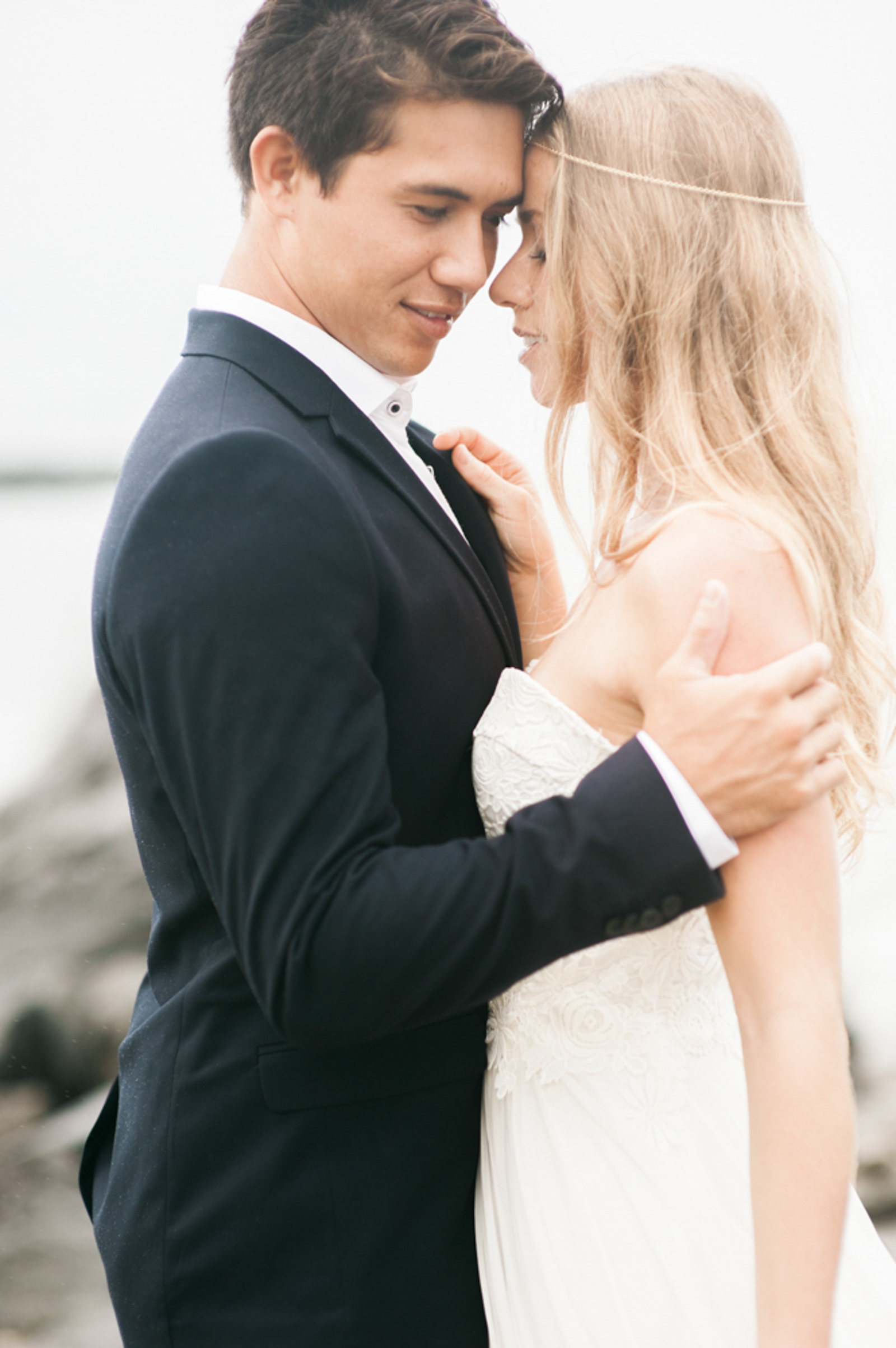Creating a flawless wedding celebration involves careful coordination and meticulous attention to every detail. Imagine beginning with a comprehensive wedding planning checklist to guide you through the essential tasks and timelines, setting the stage for a smoothly orchestrated event. As months unfold, following a well-structured wedding planning timeline ensures that each milestone is thoughtfully achieved, reducing stress and allowing you to savor every moment. Connecting with reliable wedding vendors early on will help guarantee that your vision materializes exactly as you imagined. From choosing the perfect venue to selecting a talented wedding photography team, each decision contributes to the overall charm and splendor of your day. As you navigate the planning process, remember that the key to a seamless celebration lies in preparation, leaving room for cherished memories on the special day.

Setting a Wedding Budget
Setting a wedding budget is a crucial step in planning a successful celebration. It offers you a clear picture of where your finances are allocated, guiding all your decisions throughout the planning process. Start by listing your priorities and allocating funds accordingly, whether it be the venue, wedding photography, or catering. This foresight ensures that you can focus on elements that matter most without stretching your resources.
Creating a wedding planning checklist can assist you in keeping track of expenses. Breaking down your budget into categories helps avoid unforeseen financial strains. As you proceed along the wedding planning timeline, regularly review your expenditures to ensure they align with your initial budget plan. Adjustments may become necessary as new insights or priorities arise.
Connecting with wedding vendors early is vital in securing the best services within your budget. Engage in open discussions about your spending limits with each vendor. Their expertise can often provide cost-effective alternatives that do not compromise on quality. Efficient communication establishes a collaborative partnership where vendors can help bring your vision to life economically.
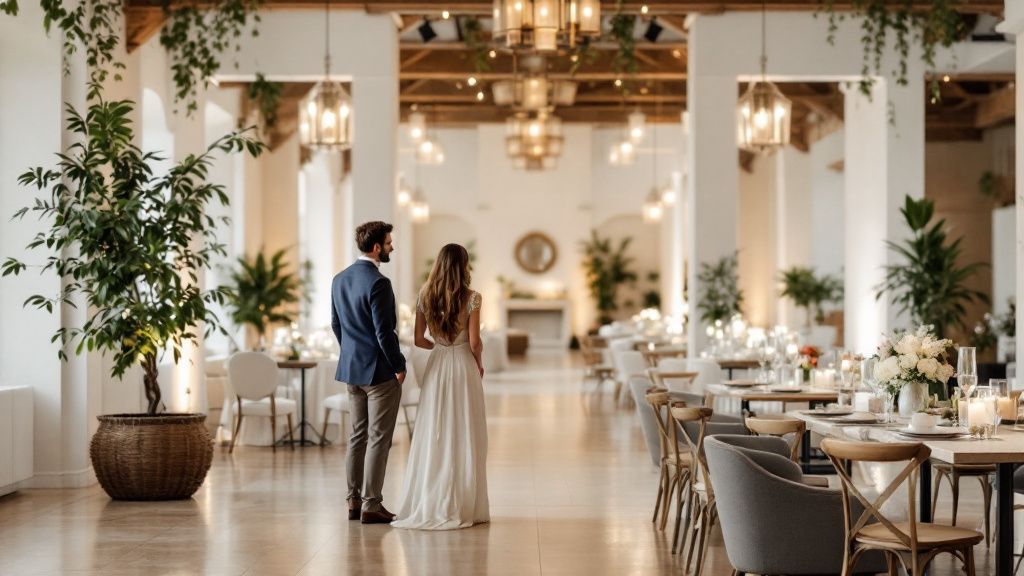
Choosing the Perfect Venue
Selecting the perfect wedding venue sets the tone for your entire celebration. Factors such as size, location, and ambiance intertwine to create the backdrop for your memorable day. Begin by considering the theme and style you envision, allowing these elements to guide your search. Carefully aligning your choice with your overall wedding aesthetic ensures a cohesive and enchanting experience for both you and your guests.
Looking at venue options through the lens of your guest experience, we can see that accessibility and comfort are paramount. Ensure that your chosen location accommodates your guest list comfortably and offers convenient amenities. Accessibility for all ages and needs is vital, transforming your event into a joyous occasion for everyone involved. Comparing potential venues with your wedding planning checklist can help refine your decision.
Engage with multiple wedding vendors for insights they may have on local venues. Their experiences and recommendations often provide invaluable perspectives you might not consider. Consider visiting each venue during a wedding photography session to envision your day firsthand. This immersion aids in capturing the essence and emotions that will resonate throughout your celebration, cementing your choice for the ideal setting.

Crafting Your Guest List
Crafting your guest list is a delicate balance of inclusion and intimacy. Start with close family and friends, then expand outward to acquaintances and colleagues. Your wedding planning timeline will guide you on when to finalize this list to ensure timely invitations. Keep in mind that your venue’s capacity is crucial, shaping how many people you’re able to invite comfortably without overcrowding.
Understanding priorities when crafting this list is vital. Consider dividing potential guests into categories based on their relationship to you. This can simplify the decision-making process. For example, you might have columns for immediate family, extended family, and work colleagues. By organizing this way, you ensure key people are not overlooked while maintaining a manageable number.
When consulting your wedding planning checklist, cross-reference your guest list with your budget. Each additional guest impacts catering costs and venue logistics. Keeping this in mind helps manage expenses more effectively. Reaching consensus with your partner and families about guest priorities can streamline this phase and support financial decisions.
Consulting with wedding vendors, such as caterers, offers practical insights into guest accommodations and service capacity. Their expertise can suggest optimal guest numbers for venues. Knowing how a particular venue functions at full capacity helps avoid surprises during your celebration. This proactive approach enhances the overall experience.
The guest list also plays a significant role in logistics for events like wedding photography. Coordinating where and how photos are taken relies heavily on knowing who will be present. This ensures everyone important to you is captured in your special day’s memories, sealing your celebration in timeless imagery that reflects the day’s joy and togetherness.
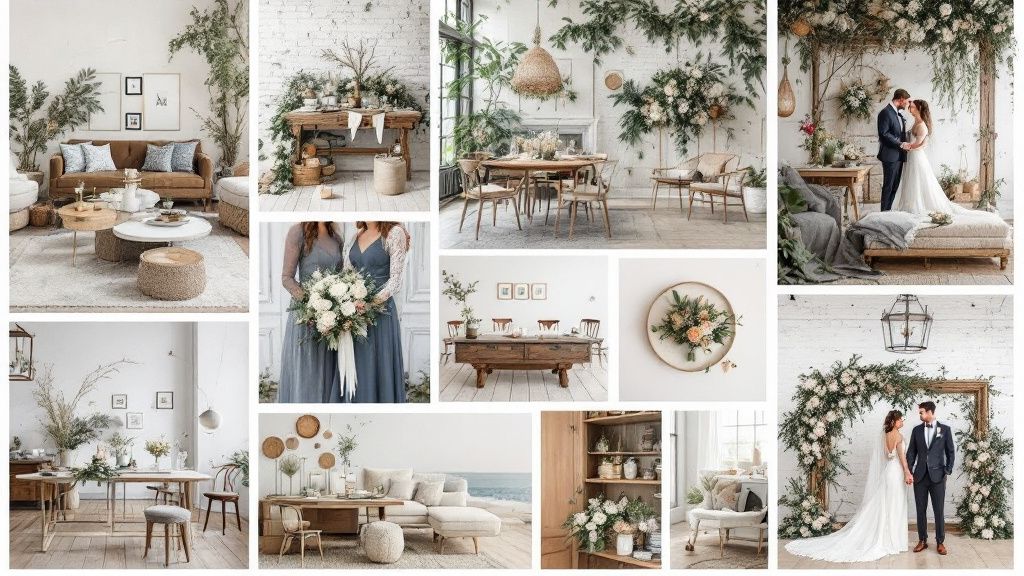
Selecting Your Wedding Theme
Selecting your wedding theme sets the foundation for a cohesive and enchanting celebration. Begin by exploring your personal style and preferences, as these elements often guide the overall aesthetic. Look for inspiration from seasonal colors, venues, and cultural influences that resonate with both you and your partner. This reflection helps you create a theme that authentically represents your story.
Comparing themed weddings to traditional classic designs, some couples might prefer a modern, minimalistic approach, while others lean towards vintage elegance. Both options offer unique charm and atmosphere, influencing elements like decor and attire. Deciding which path aligns with your vision makes coordinating with wedding vendors simpler, ensuring every detail ties together seamlessly within your theme.
As your theme influences decisions across your wedding planning checklist, it inherently affects the wedding planning timeline and logistical considerations. For instance, a beach-themed wedding might require securing permits and considering weather elements early on. Correspondingly, wedding photography should complement the theme, capturing its essence and the associated emotions. These thoughtfully aligned choices enrich your day with continuity and style.
Finding the Right Wedding Attire
Finding the right wedding attire is an exciting and personal journey, reflecting your style and the event’s theme. Start by identifying features that enhance your confidence and complement the setting. Whether you favor traditional elegance or modern trends, aligning your attire with your wedding vision is key to creating a cohesive look. This alignment adds depth to your overall theme and personal expression.
One of the most frequently asked questions about selecting wedding attire is: How far in advance should you start shopping? It’s advisable to begin this process as soon as your wedding planning timeline allows, typically 9 to 12 months before the date. This grants you ample time for fittings and adjustments, ensuring a perfect fit and peace of mind leading up to the special day.
Consulting with wedding vendors for attire recommendations can provide insights into current styles and trends, helping refine your choices. They often have connections to designers and shops that match your aesthetic needs. Additionally, consider how your attire will appear in wedding photography. The right fabric, cut, and style elevate your presence in pictures, preserving the day’s memories in exquisite detail.

Hiring a Photographer
Choosing a wedding photographer is a crucial decision in your wedding planning journey, capturing moments that echo throughout a lifetime. Ensuring that the photographer’s style harmonizes with your vision is essential for a cohesive and memorable album. Start by reviewing portfolios and testimonials to gauge their experience and work quality. This exploration sets a foundation for trust and alignment with your photographic expectations.
One of the challenges in hiring a wedding photographer is understanding their availability and pricing structures. Many couples struggle with aligning their budget and timeline with these factors. This issue can be addressed through early engagement and open communication, allowing you to negotiate packages that fit your financial plan without compromising on quality. Scheduling initial discussions well in advance is key to securing slots during peak seasons.
Wedding vendors often recommend seasoned photographers they have previously collaborated with, which can help narrow down your choices. Accountability and professionalism are vital, ensuring reliable and timely service. As you finalize your wedding planning checklist, maintaining clear communication with your chosen photographer about logistics and specific shots ensures they capture precisely what you envision. This collaboration enriches your wedding photography experience, providing lasting memories with every captured frame.
